Today, Princess Marion d’Orléans, Dowager Countess of La Marche, marks a significant milestone in her life as she celebrates her 80th birthday. Born Marion Mercedes Gordon-Orr on September 4, 1942, in Santiago, Chile, she has had a life filled with adventure, love, and dedication to her family. Her journey began with a chance encounter with Prince Thibaut d’Orléans in Paris in 1968, which led to a lifelong partnership and a shared passion for exploring lesser-known cultures.
Princess Marion’s life has been marked by her love for her husband, Prince Thibaut, and her son, Robert. Together, they traveled extensively, wrote books, and explored the world. After Prince Thibaut’s passing, Princess Marion focused on raising their son, ensuring his future in the royal house. Her dedication and perseverance have earned her a place in the hearts of those who know her. As she celebrates this milestone birthday, we wish her a very happy birthday and a continued life filled with joy and fulfillment.
what are some of Princess Marion’s most notable contributions to the royal family
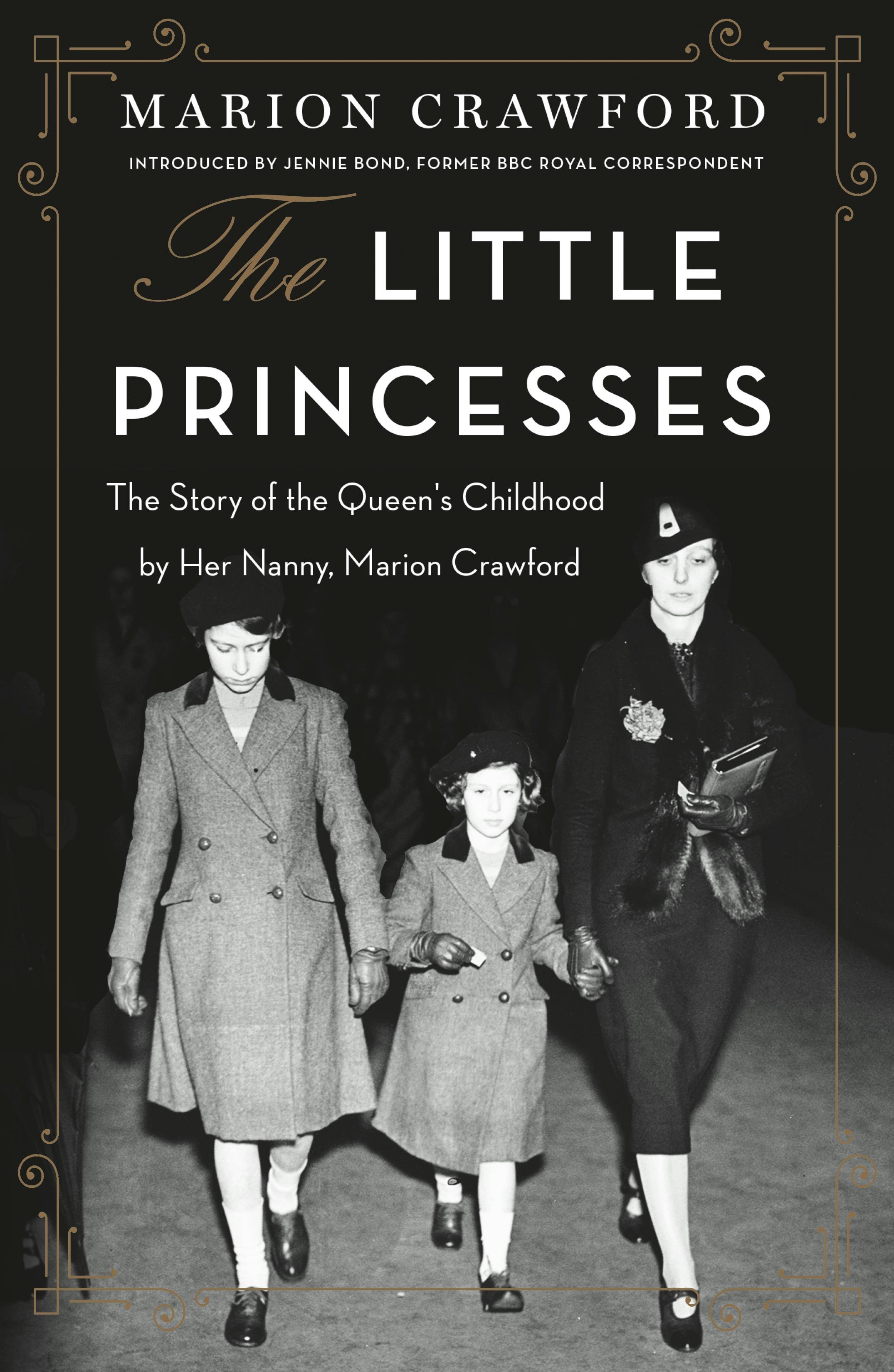
- Travel and Exploration: Princess Marion and her husband, Prince Thibaut, traveled extensively, exploring lesser-known cultures and writing books about their experiences. They visited Peru, Colombia, and Chile, where Princess Marion was born.
- Literary Contributions: The couple wrote six books in the Les Princes du sang series, detailing the fate of a fictional German princely family. The first book was published in English under the title A Castle in Bavaria between 1973 and 1974.
- Raising Her Son: After Prince Thibaut’s passing, Princess Marion focused on raising their only surviving son, Robert. Her dedication ensured his future in the royal house, and in 1999, Prince Henri, the Head of the Royal House of France, retroactively recognized Thibaut and Marion’s marriage and declared Robert a dynastic member of the royal house.
- Discreet Life: Princess Marion lives a quiet life, attending Orléans family functions on occasion. Despite her discreet nature, she remains an important figure in the royal family.
These contributions highlight Princess Marion’s commitment to her family and her role within the royal house.
how did Princess Marion’s work as an interpreter shape her role in the royal family
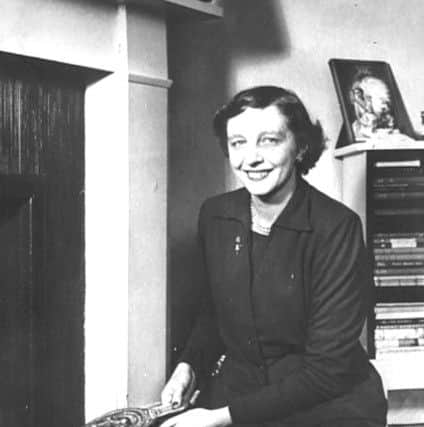
- Cultural Understanding: As an interpreter, Princess Marion was exposed to diverse cultures and languages. This exposure helped her develop a deeper appreciation for the cultural aspects of her husband’s royal heritage, which she shared through her travels and writings with him.
- Communication Skills: Her work as an interpreter honed Princess Marion’s communication skills, which were essential in her role as a partner to Prince Thibaut and in her interactions with the royal family. This skillset allowed her to navigate the complexities of royal life with ease.
- Travel and Exploration: Princess Marion’s experience as an interpreter may have also influenced her love for travel and exploration, which she shared with Prince Thibaut. Together, they visited Peru, Colombia, and Chile, where Princess Marion was born, and wrote books about their experiences.
- Discreet Life: After Prince Thibaut’s passing, Princess Marion focused on raising their son, Robert, and living a discreet life. Her background as an interpreter may have helped her develop the ability to maintain a low profile, which is characteristic of her current lifestyle.
In summary, Princess Marion’s work as an interpreter shaped her role in the royal family by fostering her cultural understanding, communication skills, love for travel, and ability to maintain a discreet life.
how did Princess Marion’s experience as an interpreter influence her interactions with other members of the royal family
- Cultural Understanding: Her work as an interpreter honed Princess Marion’s ability to understand and navigate different cultures, which was essential in her interactions with her husband’s royal family. This skillset allowed her to connect with them on a deeper level and appreciate their cultural heritage.
- Communication Skills: As an interpreter, Princess Marion developed strong communication skills, which were crucial in her role as a partner to Prince Thibaut and in her interactions with the royal family. This skillset enabled her to effectively communicate with her husband and other members of the royal family, fostering a sense of understanding and cooperation.
- Travel and Exploration: Princess Marion’s experience as an interpreter may have also influenced her love for travel and exploration, which she shared with Prince Thibaut. Together, they visited Peru, Colombia, and Chile, where Princess Marion was born, and wrote books about their experiences.
- Discreet Life: After Prince Thibaut’s passing, Princess Marion focused on raising their son, Robert, and living a discreet life. Her background as an interpreter may have helped her develop the ability to maintain a low profile, which is characteristic of her current lifestyle.
In summary, Princess Marion’s experience as an interpreter shaped her interactions with the royal family by fostering her cultural understanding, communication skills, love for travel, and ability to maintain a discreet life.
 |
|
Thibaut, Marion, and Robert.
Photo (c) Micheline PELLETIER/Gamma-Rapho via Getty Images.
|
Today, Princess Marion d’Orléans, Dowager Countess of La Marche, celebrates her eightieth birthday.
Born on 4 September 1942 at Santiago, Chile, Marion Mercedes Gordon-Orr was the only daughter of James Gordon-Orr (1894-1973), an engineer, and Gertrude Mercedes Devia Hermosilla (1914-2003). Marion’s paternal grandparents were Alexander Orr (1838-1919) and Clara Eliza Gordon (1858-1947).
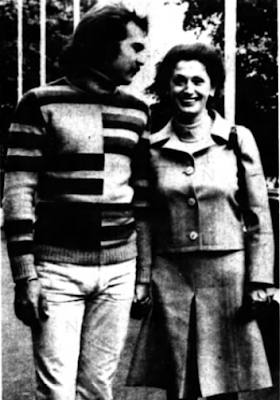 |
| Thibaut and Marion shortly before their marriage, 1972. |
In 1968, Marion first met Prince Thibaut d’Orléans, the youngest child of Prince Henri and Princess Isabelle, Count and Countess of Paris. At the time, Marion was working as an interpreter in Paris for an American firm.
 |
| Thibaut and Marion. |
 |
| The newlyweds. |
On 23 September 1972 at Edinburgh, Marion Gordon-Orr, aged thirty, married Prince Thibaut, aged twenty-four. The royal couple celebrated their religious marriage at the private chapel of Cardinal Gray, Archbishop of St Andrews and Edinburgh. At the time, their union was not pleasing to the groom’s father, and the Count of Paris forbade all family members from attending the wedding. Thibaut’s sister Princess Claude, then still Duchess of Aosta, was his only sibling to go against the wishes of the Orléans patriarch, and she was present to celebrate Thibaut and Marion’s nuptials.
During their marriage, Thibaut and Marion travelled widely. They visited Peru, Colombia, and Chile, where Marion was born. In Marion, Thibaut found a soul who shared his love of the discovery of lesser-known peoples and their cultures. Between 1973 and 1974, the couple wrote six books in the Les Princes du sang series; these books detailed the fate of a fictional German princely family. The first of these books was published in English under the title A Castle in Bavaria.
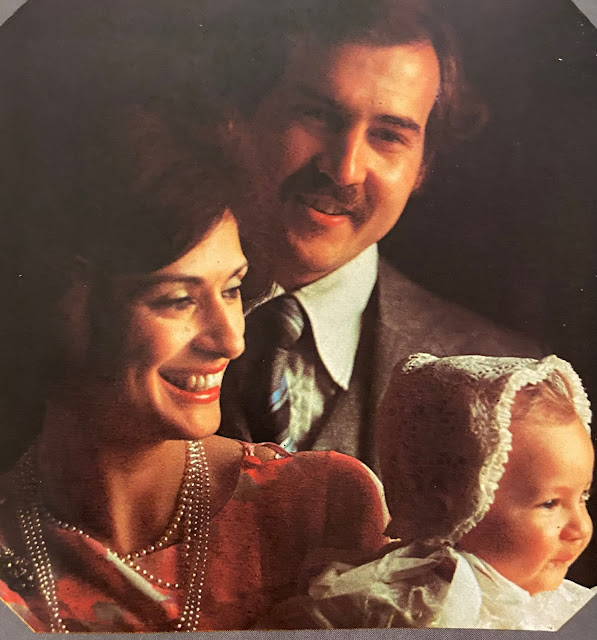 |
| Marion, Thibaut, and their eldest son Robert. |
Prince Thibaut and Princess Marion had two children, both sons and both born while Thibaut and Marion were staying with her mother in Edinburgh. Prince Robert d’Orléans arrived on 6 September 1976; Robert’s godparents are Viscount Paul de La Panouse, one of his parents’ dearest friends, as well as his aunt Princess Claude, Duchess of Aosta. Robert’s birth led to a reconciliation between his father Thibaut and his grandfather Henri. Three years later, the family was completed by the birth of Louis-Philippe on 18 April 1979; his godparents were Count Charles of Bourbon-Busset and the infant’s grandmother Madame the Countess of Paris. Tragically, eight-month-old Louis-Philippe died on 2 January 1980 from sepsis. The sudden and unexpected loss of Louis-Philippe, coupled with the brutally insensitive decision of his grandfather the Count of Paris that the young child could not be buried in the Chapel Royal of Dreux as he was not a dynast, was a blow to Thibaut and Marion.
 |
|
The Count and Countess de La Marche, 28 June 1981.
Photo (c) AKSARAN/Gamma-Rapho via Getty Images.
|
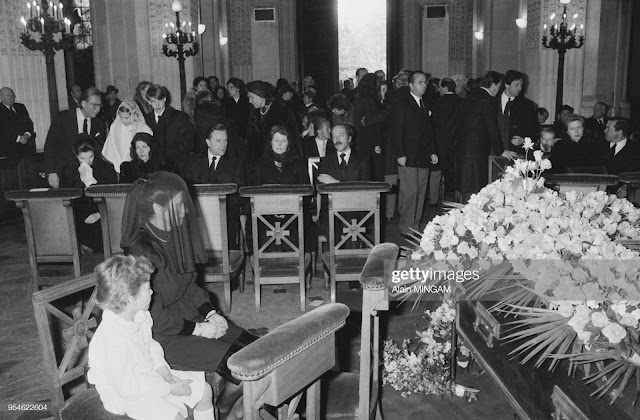 |
| Marion with her son Robert at the funeral of her husband Thibaut, 1983. Photo (c) Getty Images / Alain Mingam. |
After his release from prison, the Count of la Marche left France to organise safaris for tourists in the Central African Republic. Marion and their son Robert remained in France. On 23 March 1983, Prince Thibaut died at hospital in Bangui, in circumstances that have been considered by some to be mysterious. The prince was thirty-five years-old when he died. Thibaut’s funeral was attended by most of the Royal Family of France; even the separated Count and Countess of Clermont and divorced Princess Claude and Prince Amedeo, Duke of Aosta, came together to support Marion and her son Robert.
 |
|
Marion and Thibaut in Paris, 1977.
Photo (c) AGIP / Bridgeman Images.
|
After the death of her husband, Princess Marion focused on the upbringing of their only surviving son, Robert. In 1999, after her brother-in-law Prince Henri succeeded as Head of the Royal House of France, Henri retroactively recognised Thibaut and Marion’s marriage and, in doing so, Henri declared that their son Robert is a dynastic member of the royal house. Princess Marion lives discretely and quietly; however, on occasion, one can still spot her attending Orléans family functions.
May Princess Marion be blessed with a very happy birthday!
what were Princess Marion’s key contributions to education
- Travel and Exploration: Princess Marion and her husband, Prince Thibaut, traveled extensively, exploring lesser-known cultures and writing books about their experiences. They visited Peru, Colombia, and Chile, where Princess Marion was born.
- Literary Contributions: The couple wrote six books in the Les Princes du sang series, detailing the fate of a fictional German princely family. The first book was published in English under the title A Castle in Bavaria between 1973 and 1974.
- Raising Her Son: After Prince Thibaut’s passing, Princess Marion focused on raising their only surviving son, Robert. Her dedication ensured his future in the royal house, and in 1999, Prince Henri, the Head of the Royal House of France, retroactively recognized Thibaut and Marion’s marriage and declared Robert a dynastic member of the royal house.
- Discreet Life: Princess Marion lives a quiet life, attending Orléans family functions on occasion. Despite her discreet nature, she remains an important figure in the royal family.
These contributions highlight Princess Marion’s commitment to her family and her role within the royal house.
As we conclude our reflection on Princess Marion d’Orléans, Dowager Countess of La Marche, we are reminded of the profound impact she has had on the royal family. Her life, marked by love, adventure, and dedication, serves as a testament to the enduring power of relationships and the importance of preserving cultural heritage. Princess Marion’s journey, which began with her meeting Prince Thibaut d’Orléans in 1968, was filled with travel, exploration, and a shared passion for the discovery of lesser-known peoples and their cultures. Her work as an interpreter in Paris for an American firm before her marriage likely influenced her interactions with the royal family, fostering her cultural understanding and communication skills.
Princess Marion’s contributions to the royal family extend beyond her travels and writings. Her dedication to her husband, Prince Thibaut, and her son, Robert, has left a lasting legacy. After Prince Thibaut’s passing, Princess Marion focused on raising their son, ensuring his future in the royal house. Her perseverance and commitment to her family have earned her a place in the hearts of those who know her. As we celebrate her 80th birthday, we are reminded of the significance of her life and the importance of preserving the cultural heritage that she has helped to promote. Princess Marion’s story serves as a reminder of the enduring power of love, family, and cultural understanding, and we wish her a very happy birthday and continued joy and fulfillment in her life.
what were some of the lesser-known cultures Princess Marion and Prince Thibaut discovered during their travels
- Peru: They visited Peru, where they explored the rich cultural heritage of the Inca Empire and the vibrant cities of Lima and Cusco.
- Colombia: Colombia was another destination on their travel itinerary, where they immersed themselves in the country’s diverse cultural traditions and historical landmarks.
- Chile: As Princess Marion was born in Chile, they returned to her birthplace to learn more about the country’s history, culture, and people.
These travels allowed them to share their love of cultural discovery and exploration with each other, as well as with their son, Robert.




